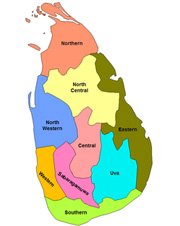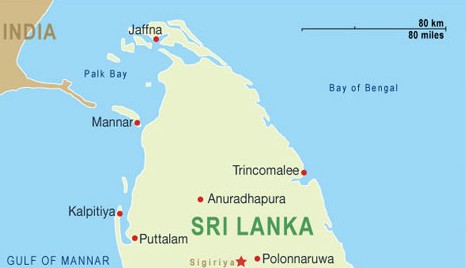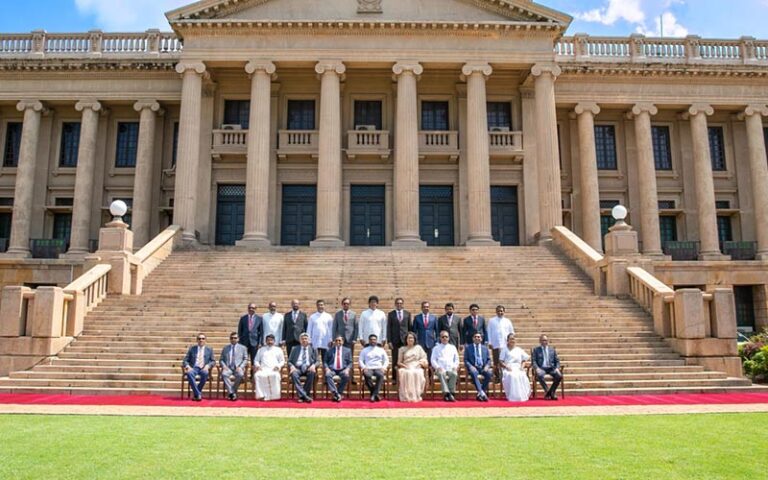
 Elections are not the be-all and end-all of democracy. Even more so, elections that are tainted. The Government’s decision to dissolve three Provincial Councils (PCs) before their mandate expired is firstly, robbing the people of their franchise. A Council, like Parliament or an elected President, is elected for a specific period. Extending or restricting this term on the decision of one person negates the franchise of hundreds of thousands, sometimes millions of voters and is essentially undemocratic. Many argue in favour of a US style election on fixed dates with fixed terms of office.
Elections are not the be-all and end-all of democracy. Even more so, elections that are tainted. The Government’s decision to dissolve three Provincial Councils (PCs) before their mandate expired is firstly, robbing the people of their franchise. A Council, like Parliament or an elected President, is elected for a specific period. Extending or restricting this term on the decision of one person negates the franchise of hundreds of thousands, sometimes millions of voters and is essentially undemocratic. Many argue in favour of a US style election on fixed dates with fixed terms of office.
This week, Parliament approved Rs. 500 million for payments to be made to newly recruited graduates by way of a Supplementary Estimate (i.e. monies outside what the Budget envisaged). The Elections Commissioner says that at least Rs. 650 million will be required for the holding of these three PC polls. Since these elections were not due this year, monies for it have not been budgeted for, and will have to be passed by Parliament by way of supplementary estimates. The Media Minister in trying to contradict the Elections Commissioner says that the expenses have not yet been computed, an inference that the Government has not considered the cost of holding these elections.
At a time when the cost of living is soaring and subsidies on imports are being squeezed with the public asked to pocket out more and more, the wisdom of spending Rs. 650 million on elections to three PCs needs serious questioning. More so, when nobody asked for these elections. At least in the case of the graduates, it is jobs for them. In the case of the PCs, it is jobs for a few, some of who already hold those jobs.
The Government has not given any cogent reason for the calling of early elections to these councils. From the political grapevine comes the story that the Government merely wants to prove a point and that is that, come what may, be it the cost of living, the international pressure from Geneva on human rights, be it Indian pressure on the 13th Amendment, the people of this country are solidly behind this Government.
The estimated cost of Rs. 650 million will only be expenses incurred by the Elections Commissioner in conducting the poll. This does not include the petrol pumped into fuel-guzzling limos of electioneering politicos and the Pajeros and jeeps of their apparatchiks and hangers-on and the posse of security personnel. It does not include the monies spent on thousands of posters, stages, food and drink. Conservative estimates put the total figure at more than a billion rupees.
This is for three councils. There are five others, and the one for which the PCs were introduced in 1987 in the first place, viz., the Northern PC elections have never ever been held.If the colossal waste of public funds – without any consideration for the costs – in what is a futile exercise is one aspect, the larger issue has always been the very continuation of the PC system of government.
Force-fed to Sri Lanka by India to appease a demand for greater autonomy in the island-nation’s North and East, it is the rest of the country that has seen the PCs function, or malfunction for 25 years. Only last week, the Governor of the Uva Province wrote to the President saying members don’t attend even the four meetings scheduled for a month and the cancellation of meetings due to a lack of quorum is a frequent occurrence. One of the main priorities of these councillors is to check on what ‘study tours’ they can go abroad sponsored by some Government or other, usually India or China.
What earthly purpose these PCs serve the people is hard to comprehend. They have only duplicated and complicated governance and the life of the people in the provinces. Education is a classic example with National schools under the central government Ministry and other schools under the provincial minister.
The choice of persons to fill these seats is another vexed issue. So much of corruption in the provinces has been placed at the doorstep of these councillors, usually from the ruling party. From sand-mining mafias, to timber felling mudalalis, to peddlers of drugs to gun-toting thugs; from ‘kappan’ gangs to liquor barons – all have their patronage if not the connivance of this new breed of ruling elite in the provinces.
The same example, or malaise, has trickled to many local government councils right down to the Pradeshiya Sabhas whose chairmen are repeatedly getting arrested for rape, shootings and the like.
The Government seems to have got trapped in a comment the President made to India that he would implement the 13th Amendment and even go further (13 plus). He said this initially to get Indian support to defeat the LTTE on the battlefield. Now, the Indians, like the dog with the bone, will not let go.
It is clear that India would like to have an elected Northern PC with its proxy, the Tamil National Alliance (TNA), in control. That would be an ideal satellite province on Sri Lankan soil – ‘an unsinkable aircraft carrier’ on India’s southern border.
The Government need not wait for the TNA any longer to proceed with a Parliamentary Select Committee on the question of devolution, and it must not be restricted to the 13th Amendment for a solution. If it is speaking of a ‘home grown’ solution, then, it must escape from the grip of the 13th Amendment. The solution cannot be constricted to autonomy around the controversial provisions of the 13th Amendment merely because India is pressing for it.
There must be freedom to look elsewhere for a solution.Costly elections to these PCs (which the ruling party condemned in 1987) to prove a point that the people remain steadfast with this Government are of no avail. Especially so, when elections are tainted by an Election Commission that has lost its credibility in recent years; whose recommendations for electoral reforms have been ignored by Parliament; whose former head admitted to being under intense pressure during the counting stage of the last Presidential election and that he no longer had the stomach to conduct elections; and last but not least, where the Election Commission has no power to stop the abuse of state machinery and other tricks and treats to win elections.
Source : Sunday Times (Sri Lanka)




